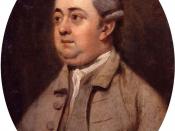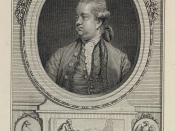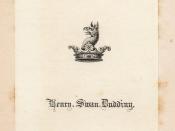Why Rome Fell
The sun had long ago set, the newborn moon peeked out from behind a scattering of thin, high clouds. From a vantage point atop one of seven hills I could see glimpses of how this great city must once have looked. The mammoth buildings seem to shed their long years and are once again as they were; huge, awe inspiring, it is as if a portal in time had opened and I am afforded a glimpse into what was Rome. What could have caused this once master of all cities to fall? This paper will attempt to describe some of the explanations generally accepted, or should I say argued, and possibly shed some light on what could have caused the fall of what was, unquestionably, the most powerful empire in history.
I feel that I must begin with the explanations given by Edward Gibbon. While few agree entirely with his logic, his Decline and Fall on the Roman Empire is certainly unavoidable in a paper such as this.
His work could be best summed up by the word confusing. According to David Jordan, 'the causes for Rome's fall march across the pages of the Decline and Fall, seemingly without pattern, and seemingly unrelated to each other. This quote taken from the seventh chapter of Jordan's Gibbon and his Roman Empire sum up my feelings concerning the work; however, I will attempt to show some of Gibbon's Causes for this decline.
Two of Gibbon's causes are the political blunders of its emperors and their search for personal glory. These are especially obvious in his chapters on Constantine. In them Gibbon accuses the emperor of destroying Rome for his own personal glory. Another cause would have to be the anti-Roman nature of Christianity. Gibbons argues that the 'insensible'...


